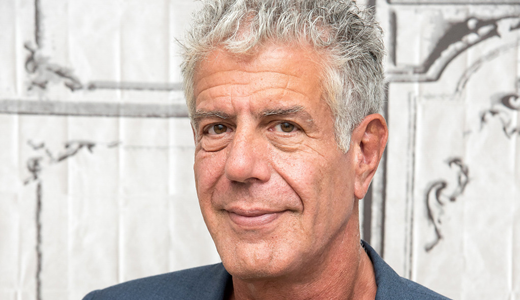The suicide rate in the United States has increased dramatically in around the last two decades: 28% from 1999 to 2016, according to a just-released report from the Centers for Disease Control and Prevention. In fact, suicide is now the 10th leading cause of death in the United States, claiming 45,000 lives in 2016.
Suicide is always a tragedy, one that often forces families and friends of those who choose it to ponder what they might have done differently as they grapple with survivor guilt.
But what happens when a celebrity takes his or her life? How does it influence our broader culture?
In the last week, two public figures reportedly chose to kill themselves: celebrity chef and travel show host Anthony Bourdain and handbag designer Kate Spade. Following Spade’s suicide, calls to the National Suicide Prevention Lifeline, 800-273-8255, increased by 25%.
It’s impossible to know, of course, exactly how much of that increase should be attributed to these high-profile celebs’ suicides. That said, The Wall Street Journal reports (paraphrasing Lifeline director John Draper), “Whenever a notable person commits suicide, calls to hotlines spike.”
Celebrities, of course, have long held a certain kind of allure for fans. But in our digitally interwoven age, the impact of a famous person’s choice to take his or her own life is arguably amplified even further. The 24/7 news cycle, combined with social media’s omnipresence and smartphones’ constant story feeds, creates an information environment in which sad news like this is suddenly everywhere, repeatedly, simultaneously. The cumulative effect of this barrage can be a matter of life and death for those already wrestling with suicidal ideation.
Writing for Vox, Jennifer Michael Hecht notes,
When someone struggling with mental health is suffering and knows that someone like them responded to that suffering by killing themselves, it puts death on the table. Media contagion research shows a dose effect: the more exposure to media reporting of suicide, including the number of articles and the prominence of the death, the greater the copycat effect.
You might think that this “copycat effect” is a new thing. But in fact, it stretches back as far as the 18th century. In her report “Suicide and the Media,” Columbia University researcher Madelyn S. Gould writes:
The occurrence of imitative suicides following media stories is largely known as the “Werther effect,” derived from the general impression that Goethe’s novel The Sorrows of Young Werther in 1774 triggered an increase in suicides, leading to the book’s ban in many European states.
Gould also notes that previous research on the subject of media’s influence “found that the impact of suicide stories on subsequent completed suicides was greatest for teenagers.”
At Plugged In, we often focus on the influence that entertainment has on young people. While we spend most of our time examining fictional stories, such as Netflix’s controversial series 13 Reasons Why, it’s equally important to recognize the impact that news stories can have, too. (For more on navigating the significant concerns in that show, download “A Parents Guide to 13 Reasons Why.”) What celebrities choose can have a real impact, for good or for ill, on fans who pay attention to their choices and values—up to and including suicide.
Focus on the Family is committed to helping you deal with this difficult subject (as well as the related issue of teen depression and other mental health concerns). Check out our article “Preventing Teen Suicide” for more information. If you suspect that your teen may be dealing with suicidal thoughts, “Teen Suicide: Intervention Strategies” offers next-step guidance as well.






Recent Comments